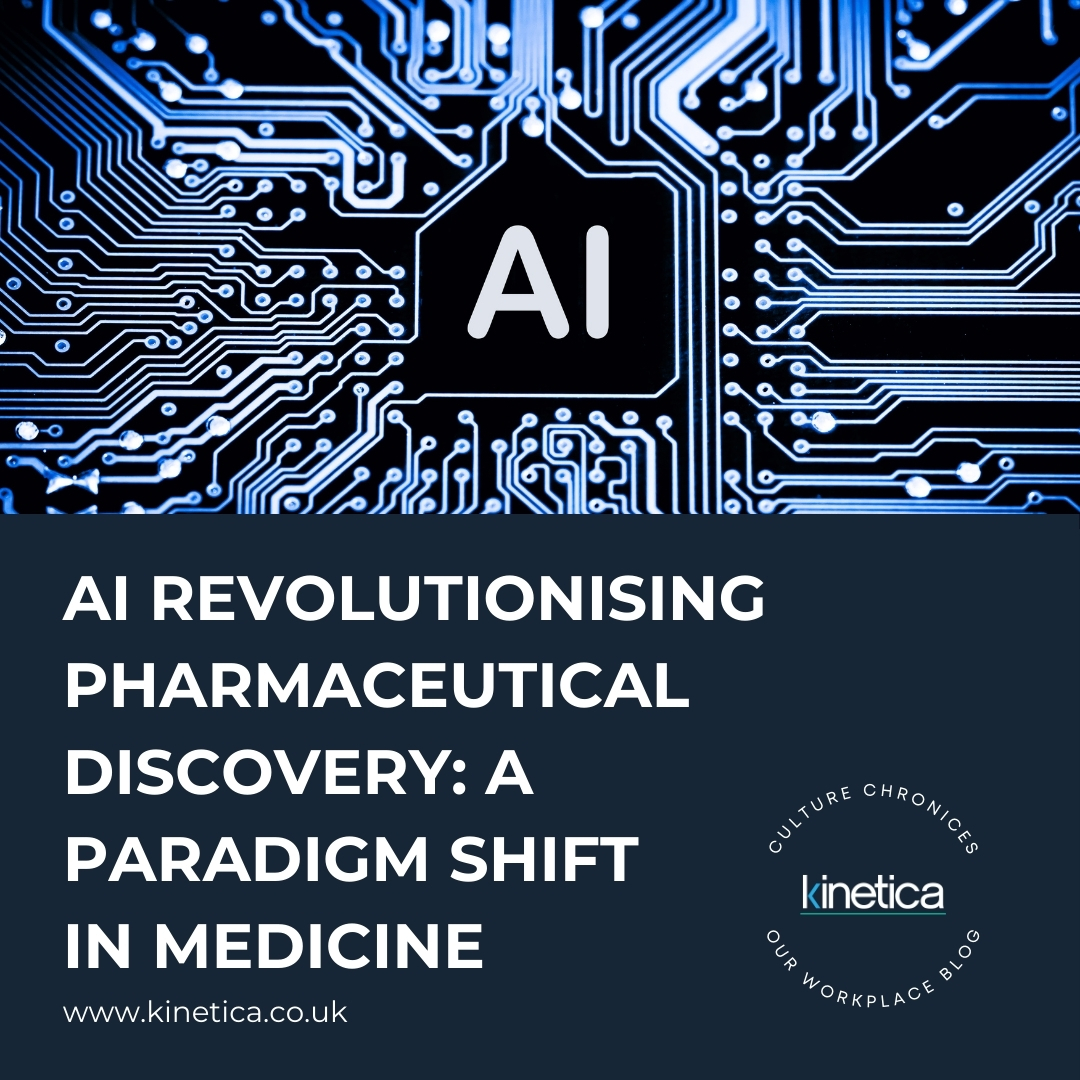INSIGHTS
The latest insights & news from Kinetica
How AI Is Accelerating Drug Approvals
17 Apr, 20255 MinutesAI is already disrupting traditional drug development models in several key areas: AI-P...

AI is already disrupting traditional drug development models in several key areas:
AI-Powered Drug Discovery
The discovery phase is one of the most time-consuming parts of drug development, often taking years. AI is transforming this process by:
Scanning millions of compounds in databases to predict which molecules are most likely to succeed as drugs.
Modelling protein structures and interactions at an unprecedented speed, helping researchers design targeted therapies faster.
Identifying drug repurposing opportunities, reducing the need for lengthy preclinical testing.
In 2024, the first AI-designed drug entered Phase II clinical trials, marking a major milestone in AI’s role in pharma.
Optimising Clinical Trials with AI
Clinical trials are one of the biggest bottlenecks in drug development, often failing due to poor patient recruitment, flawed study designs, and high dropout rates. AI is addressing these challenges by:
Predicting patient eligibility more accurately, reducing recruitment delays.
Analysing real-world data to design better trials with higher success rates.
Detecting safety signals earlier, helping regulatory agencies make faster, more informed decisions.
AI-driven clinical trial design has the potential to cut development timelines by up to 30%.
AI in Regulatory Submissions
Regulatory approval involves extensive data review, documentation, and compliance checks. AI is:
Automating the generation and validation of submission documents to reduce human error.
Using machine learning algorithms to compare new drugs with previously approved treatments, helping regulators assess risk more efficiently.
Supporting post-market surveillance by monitoring real-world patient data to ensure continued drug safety.
Regulatory bodies, including the FDA and EMA, are becoming increasingly open to AI-enhanced submissions, recognising their potential to increase efficiency without compromising safety.
What Does This Mean for the Industry?
The use of AI in drug approvals is not just about speed—it’s about precision, efficiency, and ensuring patients get access to safe treatments faster. As AI continues to play a growing role in regulatory decision-making, the industry is seeing:
Shorter drug development cycles, leading to faster patient access.
Lower R&D costs, making drug development more sustainable.
A higher demand for professionals with expertise in AI-driven regulatory affairs.
At Kinetica, we work closely with biotech and pharmaceutical firms to help them find the right talent.
With AI set to reshape the future of drug approvals, having the right expertise in place will be critical for companies navigating this evolving regulatory landscape.
For support in building your AI and regulatory teams, get in touch at info@kinetica.co.uk.
#Kinetica #Biopharma #DrugDevelopment #RegulatoryAffairs #AIinHealthcare



